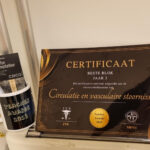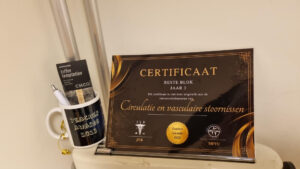english:
Subsidy for 29 innovative research teams from ZonMw Open Competition
For the ZonMw Open Competition round 2023, a total of 29 research teams were awarded a grant from a total budget of € 23 million. With this financing, all research groups can develop innovative team science initiatives that contribute to innovation within fundamental (bio)medical science and healthcare in the long term.
A wide and diverse range of topics are explored
The 29 research teams will investigate a wide and diverse range of topics with questions in the field of fundamental (bio)medical research. For example, one research team wants to investigate the positive effects of short-term sports exercise to protect against damage to heart tissue during open-heart surgery, and another research team wants to unravel the mechanisms that lead to cognitive problems due to brain damage after serious infection. Using highly innovative technologies, research will be conducted into, among other things, the production of blood stem cells and the role of the intestinal barrier function in weight loss in patients with cancer. Read this and more in the complete overview of the research teams that received this grant.
What is the purpose of the ZonMw Open Competition program?
The aim of the ZonMw Open Competition program is to create space for curiosity-driven and creative collaboration that leads to groundbreaking science. The program is specifically intended for researchers from two or more disciplines who synergistically promote excellent team science. The applications are therefore tested and ranked on these points based on the criteria of relevance and quality. Because knowledge utilization and participation are also important criteria, all successful applications have a convincing plan for knowledge utilization and participation that matches the objective of the research.
Awarded Projects
Human heart-mimetic models for personalized medicine (HEARTTWIN)
Prof dr R Passier University of Twente
Prof dr J vd Velden Stichting Amsterdam UMC
Cardiovascular diseases (CVD) are the leading global cause of mortality, with hypertrophic cardiomyopathies (HCM) prominent among contributors. HCM presents diastolic dysfunction, metabolic issues, and fibrosis. Current models inadequately predict drug efficacy, hindering disease understanding. The HEARTTWIN research proposes using advanced human heart models, including heart slices and stem cell-based tissues-on-a-chip derived from HCM patients. These models replicate multicellular architecture, function, and HCM phenotype, allowing detailed assessment of heart function and metabolic mechanisms. HEARTTWIN aims to utilize these innovative models for acute and long-term HCM drug treatments, including clinically relevant metabolic drugs. Subsequent analyses will provide valuable insights, holding promise for personalized CVD therapy. Successful implementation will clarify disease mechanisms, enhance drug discovery, and improve patient care.
Innovative modelling of the human microcirculation by merging vascular cell biology with computational science
Prof dr PL Hordijk, Stichting Amsterdam UMC
Prof dr A Hoekstra, UvA
Cardiovascular disease occurs when the small blood vessels, which supply all body cells with oxygen and nutrition (the microcirculation), become inflamed. All our blood vessels are lined by endothelial cells, which play a central role in vascular health and – disease. We recently discovered a mechanism that regulates the function of these endothelial cells, and thus also of the microcirculation. In this project, advanced microscopy and laboratory research will be integrated with mathematics. By making use of new techniques to simulate the human microcirculation in the lab and in the computer, healthy and inflamed endothelial cells will be studied. We will also investigate how blood plasma from patients with chronic kidney disease, who have a high risk of cardiovascular disease, affects endothelial cells and the microcirculation. This project will bring new knowledge and yield new (mathematical) models, which may aid in future diagnosis and treatment of cardiovascular disease.
It takes three to tango: fat vessel crosstalk in muscle at the origin of diabetes
Dr E Eringa Stichting Amsterdam UMC & Maastricht University
Prof. C Schalkwijk, Maastricht University
Dr. J de Winter, stichting Amsterdam UMC
Dr. C van den Weijer, Maastricht UMC+
Dr. M Baker, Maastricht University
With this research project we aim to elucidate the role of fat around microvessels in muscle in type 2 diabetes and muscle weakness. We hope to discover that this fat controls contraction and glucose uptake of muscles, and its functions can be normalized in type 2 diabetes by locally treating it with medical therapy. To achieve this, we will make images of this fat and sugar uptake in muscles of healthy people and people with early diabetes, and precisely characterize gene expression in muscle fat. We will study the effect of muscle fat on sugar uptake and strength in human “muscles in a dish” built from muscle cells, human microvessels and human muscle fat. Finally, we will remove muscle fat in obese mice, or treat it with a smart coating containing an anti-inflammatory drug. Our research can lead to new therapies to reverse type 2 diabetes.


